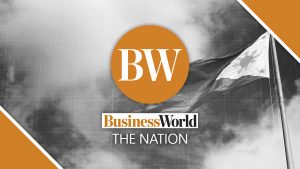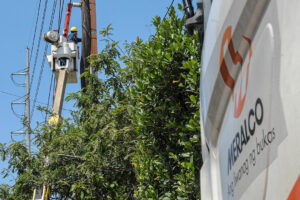Digital transformation in Philippine agribusiness: The case of Lionheart Farms

(Part 3)
For large corporate farms in the Philippines, it is possible to combine the most advanced agritech with labor-intensive technologies so that we can address the serious problem of mass poverty and underemployment while at the same time attaining higher farm productivity through such technologies as AI, digitalization, and data analytics.
The example of Lionheart Farms can be cited to attain these twin objectives of poverty eradication and high economic growth through technical innovations. In the Forum on the Digital Transformation of Philippine Agribusiness, Christian Eyde Moeller of Lionheart Farm went into great detail in explaining how his commercial coconut farm in Rizal, Palawan is operated. I will quote from his remarks during Panel 1 of the Forum entitled “Digitalization in Farm Production and Postharvest.”
“First of all, we are operating in an area that is not electrified. We do not have mobile data networks and yet I can say that we employ mostly people who never had a job before in their lives, including indigenous people (the Palawan tribe). But today, we are completely digitalized from one end to another. Starting in the field all the way to the processing of the raw material, you can access our Apple Android Appstore and download our app. You can read about our business strategy that starts with the big question of where will the next generation of farmers come from. In a word, how do you make agriculture look ‘sexy’ to the young?”
Lionheart Farms employs some 2,000 workers, most of them from the lower-income segments of Palawenos, including members of indigenous tribes of which there are a large variety in the whole set of islands called Palawan (there are some 1,200 islands).
While addressing the poverty challenge, the business plan of Lionheart simultaneously tackles directly the primordial need of productivity improvement. Coconut farming is one of the most unproductive activities in Philippine agriculture. It is only a slight exaggeration to say that since time immemorial, coconut farmers wait for the coconuts to fall and while waiting indulge in drinking the coconut-derived liquor called lambanog.
That is why, in Lionheart Farm, industrial engineering methods like time and motion studies were applied to such necessary functions as growing and planting seedlings, harvesting the coconut sap that is the main raw material for the final product, etc. In addition to these IR 1.0 and IR 2.0 technologies, the IR 4.0 tool of digitalization is applied in the farm through the daily collection of a number of data sets. To collect millions of data points related to integrated farming, processing, and global logistics, Lionheart Farms built its own ERP.
Fortunately, today the tools of digitalization are easily accessible with practically no cost. Mr. Moeller advised the audience to go to Google Cloud and the many other services that are available at practically no cost. According to him, Lionheart Farms spends a lot less on digitalization than most other expense items and yet he considers it to be their most strategically important tool.
As regards post-harvest, this is what Mr. Moeller had to say:
“Some of you may know that we have chosen to specialize in harvesting from the flower of the coconut. You may be familiar with tuba, the coconut wine. This is also the same raw material that is used to produce coconut sugar. This is the raw material that we ferment in Lionheart. We are dealing with a substance that easily spoils. You can imagine the challenge of harvesting this raw material from thousands of palms, hundreds of thousands of palms and you have only one hour to bring them from harvest to processing. We are talking about a very time-sensitive type of harvesting.
“It would be impossible to come out with a quality product without a clear understanding of the process. To make matters even more complex, it is not only about managing the scale and efficiency of the operation, but also maintaining minimum quality standards. Increasingly, the market is looking for quality assurance. Consumers are demanding that there be certification of the quality of the product. To have this certification, traceability is required, thus making demands of traceability. This in turn would require accumulating data back to the source.
“From all of these, it becomes obvious that data is truly the ‘new gold.’ Data all of a sudden becomes meaningful not only in terms of managing productivity and quality, but it also becomes valuable to the ultimate customer.”
Then Mr. Moeller brought up a major contribution that large-scale commercial plantations (whether coconut, palm oil, bamboo, and other tree crops) can contribute: obtaining carbon credits. Lionheart Farm is trying to become the first scalable supplier of nature-based carbon credits in the Philippines. At the moment, fuel guzzlers like Cebu Pacific, Philippine Airlines, etc. are eager to buy carbon credits. They are still non-existent in the Philippines.
Here is again another reason to gather a great deal of data which enables traceability, without which it would not be able to get the certifications needed in obtaining carbon credits. Digitalization, therefore, is a must if we are going to obtain greater monetary value for our agribusiness project.
The final point that Mr. Moeller made is that digitalization requires significant improvements in our digital infrastructure. In his words:
“It is incredibly sad to witness the state of mobile data connectivity or any kind of connectivity in the provinces, in the rural areas. When you consider the inequality between the rural and urban areas, this serious disparity can be addressed by investing a lot more in digital or communications infrastructures.
“I have lived for the last 10 years in what can be called the frontline, out there where real things happen in farming. I have seen the incredible things that happen in the hands of Filipinos once they get connectivity. It is very inspiring and very liberating. It had been mentioned that we are working with people of indigenous tribes. Let me say that the head of our digitalization efforts is the daughter of one of the indigenous families. They are hungry and they’re incredibly capable of learning. So what is needed is basically just to put the infrastructure in place. All the tools are what we call cloud-based.”
Mr. Moeller’s closing remarks reinforced the main idea that digitalization makes it possible to combine the two important objectives of promoting higher economic growth through significant improvements in productivity while, at the same time, still using labor-intensive technologies corresponding to the IR 1.0 and IR 2.0, that is, the eras of mechanization and electrification. In the Lionheart Farms case, it was still possible to employ thousands of workers coming from the low-income households of the region and expanding their earnings, in many cases by a factor of four to five times their previous incomes, This enabled many of the households, including those coming from the indigenous tribes, to rise from poverty.
“We also demonstrated that the more data you are able to accumulate, the more transparency there is about how productive the workers are (e.g., the harvesters and the farm workers). Such information made available to the workforce is one added incentive for them to aspire for greater productivity and efficiency.”
(To be continued.)
Bernardo M. Villegas has a Ph.D. in Economics from Harvard, is professor emeritus at the University of Asia and the Pacific, and a visiting professor at the IESE Business School in Barcelona, Spain. He was a member of the 1986 Constitutional Commission.




